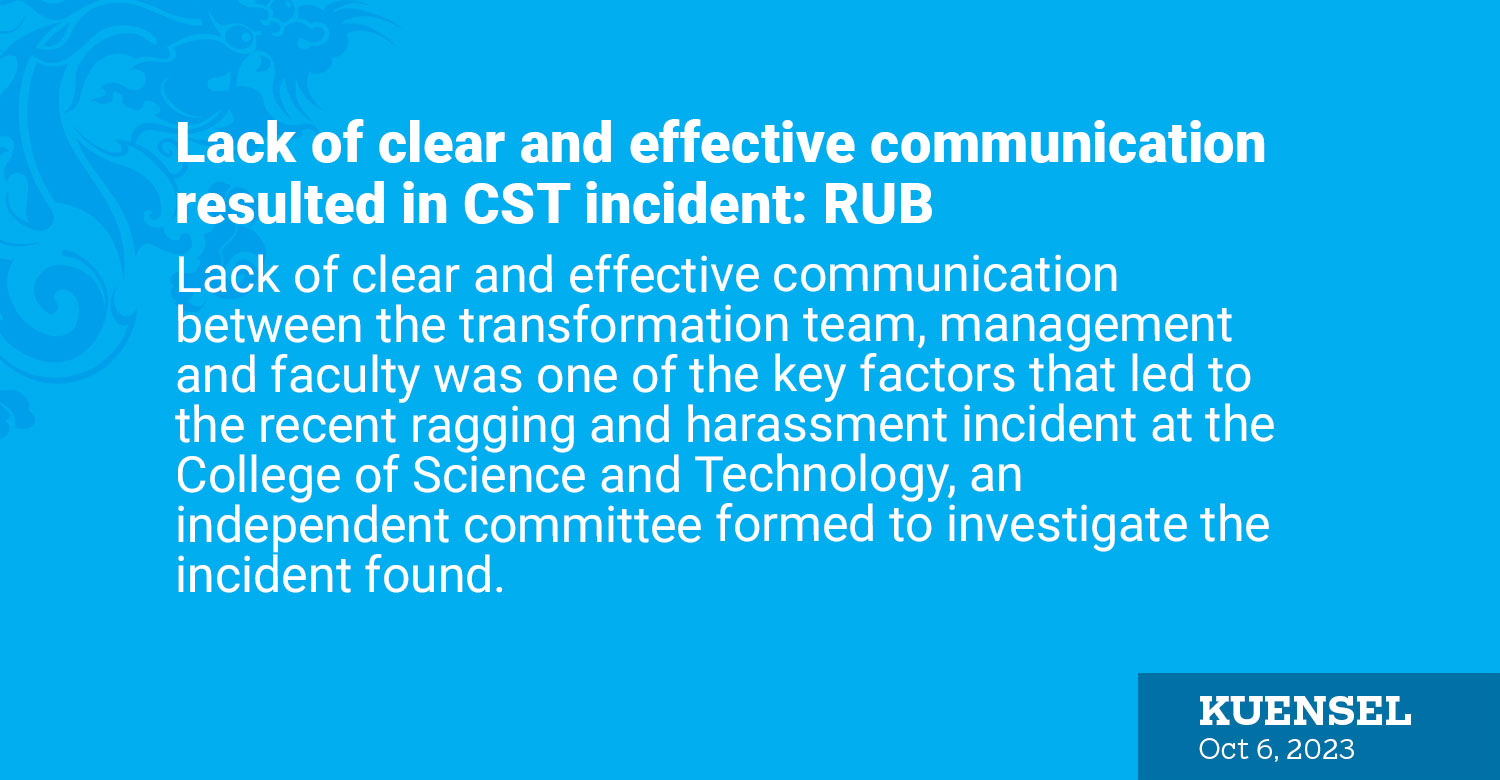College to elect new student leaders this week
KP Sharma
Lack of clear and effective communication between the transformation team, management and faculty was one of the key factors that led to the recent ragging and harassment incident at the College of Science and Technology, an independent committee formed to investigate the incident found.
The Royal University of Bhutan conducted an investigation into the case between September 11 and 16. A press release issued on October 3, stated the committee also observed a lack of well-defined terms of reference for the transformation team and recruited experts, both at the individual and general levels.
This finding was one of the four recommendations provided by the committee to the college.
“It is imperative to promptly establish terms of reference to create a shared understanding of expectations, clarify accountabilities, and outline the roles of the transformation team and the recruited experts in the college reformative initiative,” stated the press release.
The investigation revealed a prevailing practice where junior students are subjected to harassment and ragging which includes verbal abuse and mistreatment by final-year students.
This briefing practice where fourth-year students brief the first-year students on the college rules occurs during odd hours, raises concerns about the overall learning environment.
As per the committee’s finding, although there are no formal references or written directives from the college regarding this practice, both students and staff members are aware of it.
The committee recommended that the College take immediate action to discontinue the briefing practice and implement strict rules to prevent ragging within the institution.
“These activities can have adverse effects on the mental well-being of victims, leading to issues like stress, depression, anxiety and demoralization.”
The committee also found that the proposals aimed at enhancing student welfare and development were well-intentioned, they lacked sufficient communication. “This communication gap resulted in misunderstanding and misgiving, which led to resistance among some students regarding the proposed changes.
The college was recommended to establish mechanisms to ensure that faculty members are well-informed and involved in student-related activities such as career-focused interactions and industry engagement.
The findings also revealed a lack of adherence by students and faculty to the college’s code of conduct.
To address this issue, the committee recommended reinforcing the code of conduct for all staff and faculty members, irrespective of their positions within the college or their level of involvement.
“Every member of the CST is expected to be familiar with the code of conduct which is applicable to his or her position and duties,” the press release added.
The committee also urged the college to provide thorough orientation on these matters to all new faculty members and staff including the transformation team, adding that the college must implement programs to create awareness and compliance.
The RUB will establish a collaborative task force to implement the recommendation at the college.
Meanwhile, the 19 student leaders who were suspended by the transformation team between August 31 and September 3 were reinstated and permitted to resume their classes from September 4.
This decision was made following a meeting between the college management and the transformation team during which the college management proposed to address the issue in accordance with the college’s disciplinary guidelines.
The college plans to elect the new student leaders within this week.


